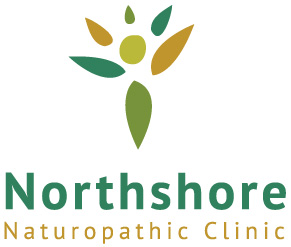By Dr. Jonn Matsen, ND
The causes of most chronic disease are quite common—and easier to address than you think.
While there are hundreds of chronic diseases, there are only a handful of causes for most of them. Many doctors search for the pathology behind a disease and then attack it aggressively with medications. This often works for acute afflictions, but is likely to cause more harm than good when it comes to chronic diseases, which are typically systemic in nature.
My philosophy is that the body heals itself if you “delete and treat” the under- lying causes. The goal is to learn why certain organs are malfunctioning, and then return them to good working order. Here’s a look at five major causes of chronic disease.
TRAUMA is injury created by mechanical force. While trauma to the body may
be obvious, trauma to the head can linger if not diagnosed and treated properly.
My local hospital missed diagnosing a concussion I sustained after a car accident. Fortunately, one of my patients was able to steer me to people who were able to diagnose the injury accurately. After 10 days of electronic treatment, my memory (which had been fuzzy since the accident) was restored. I was so impressed with the improvement that a naturopathic doctor in my office took the training and now treats head injuries.
STRESS can wear out people, but it can be managed. There is testing that can
determine if the stress is physical and/or mental—and how your adrenal glands are coping with the stress. For stress and anxiety, I often suggest the following herbs to patients: holy basil, passionflower, chamomile, ashwagandha, and rosemary.
POOR DIET is common. Your body needs nutrients, not stimulants.
Processed foods won’t give your body the nourishment and energy necessary to attain and maintain good health.
EATING TOO WELL can be as destructive as eating a poor diet. Eating too well is the third-most-common cause of disease, after metal exposure and poor diet. Your kidneys judge the seasons by the foods you eat, and adjust your activation of vitamin D according to the sodium/ potassium in your diet.
Eating out of season can convince your kidneys that you’re in a warm, sunny season, so they deactivate your stored vitamin D. That causes calcium levels to decline, allowing bacteria and yeast into your small intestine where they wreak havoc with your digestion and vitamin absorption. This is comparable to what Chinese medicine calls, “being too yin.”
METAL EXPOSURE is the biggest cause of chronic disease and the slowest to respond to treatment. The most common contaminating metals are mercury, lead, and aluminum. According to autopsy studies done at Sweden’s Karolinska Institute, people with mercury amalgam fillings had three times more mercury in their brains and nine times more mercury in their kidneys compared to people who had no history of mercury fillings.
Removing heavy metals must be done cautiously because you are putting the metals into circulation in the body.
Dr. Matsen’s Essential Supplements
Supplements are important, as they help strengthen and heal the body in numerous ways, including supporting liver detoxification, improving digestion, weakening intestinal yeast, and improving intestinal flora. Here are two key nutrients to consider taking in supplement form:
Vitamin D: In hot, sunny weather, if your skin makes lots of vitamin D, your kidneys don’t need to activate the D stored in your liver. If there’s not much sunshine, your kidneys can active vitamin D into a stronger form that improves calcium absorption by up to 1,000 times.
Vitamin K: While the kidneys’ activation of vitamin D is crucial for getting
calcium into the blood, it’s vitamin K that delivers calcium from the blood into the bones. Vitamin K also prevents calcium from sticking in arteries, thereby reducing the risk of heart disease and stroke.


